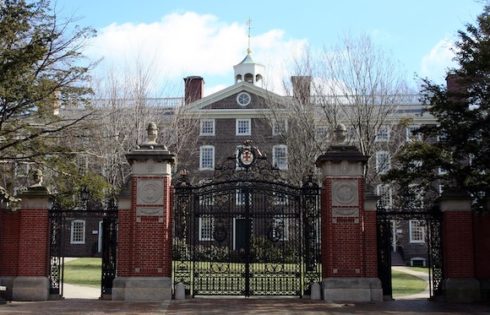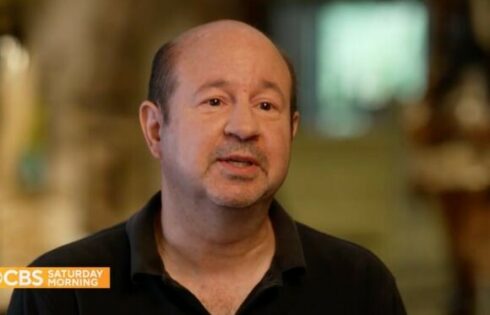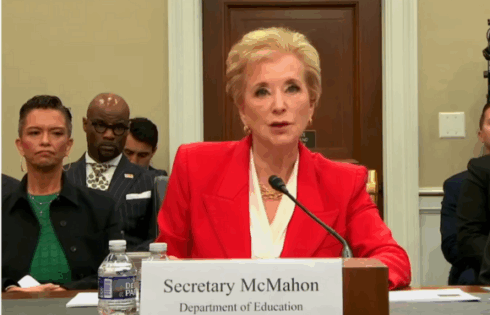
‘A rather misleading summary of the paper’
Nearly two years ago, a feminist philosophy journal faced demands to retract a paper that compared “transracialism” to transgenderism. Some of its editors quickly apologized, but were then overruled by the journal’s top editors.
Another philosophy journal is facing similar retraction demands for publishing a paper on “group differences in intelligence,” but its editors preemptively said that’s not going to happen.
The petition against Philosophical Psychology for publishing “race science” is led by Mark Alfano, whose CV says he currently teaches at the Netherlands’ Delft University of Technology and Australia’s Macquarie University.
It calls on editors Cees van Leeuwen and Mitchell Herschbach to retract the paper, apologize, resign or “some combination” of those. As of Thursday night, the petition had under 70 signatures including Alfano’s.
While that’s far below the 800 signatures quickly amassed against Rebecca Tuvel’s comparison of Rachel Dolezal to Caitlyn Jenner in Hypatia, the controversy is generating the same battle lines, with scholars debating the merits of the paper and the role of free inquiry in science.
Van Leeuwen and Herschbach published an editors’ note the day after the Dec. 23 paper by Nathan Cofnas, a PhD student in philosophy at the University of Oxford, defending free inquiry regardless of the controversy generated by his argument.
They followed up with a Facebook statement Tuesday disputing Alfano’s criticisms of the editorial process in his petition and associated blog post, saying he offers “a rather misleading summary of the paper.”
They will “let freedom of expression prevail over instincts to censor unwelcome opinions” while welcoming “responses to what is empirically and normatively controversial about Cofnas’ paper,” the editors wrote.
Cofnas told The College Fix in an email that he has received several supportive messages from philosophers in response to the controversy.
He’s particularly glad to be at Oxford, where his department has remained committed to free inquiry, he said. Oxford philosopher Jeff McMahan is a founding editor of the forthcoming Journal of Controversial Ideas, “in which scholars will be able to publish on controversial topics pseudonymously,” Cofnas noted.
While “powerful people” may “take revenge,” he said, “it’s easier to challenge orthodoxies in philosophy than it is in many other fields,” despite some “groupthink” among philosophers.
Another philosophy professor who has publicly tangled with Cofnas over the paper, Yale’s Jason Stanley, told The Fix he disagreed with Alfano’s demands.
“No action should be taken with regard to Cofnas and the journal,” he wrote in an email, while noting that “hardly any philosopher has signed on to this petition for retraction.” Stanley’s view is that “papers shouldn’t be retracted and people should feel freedom to advance their views about published papers without fear of being mobbed.”
MORE: Hypatia apologizes for comparing Rachel Dolezal to transgenders

Did Head Start fail because it ignored possible genetic differences?
Cofnas’ argument is not that science has shown some races are inherently smarter than others – but that it might go that direction.
“We should be prepared” to deal with “the moral implications of group differences to prepare for the possibility that they will be shown to exist,” he wrote. Cofnas believes that will happen in a “very short time” as scientists discover “many of the genetic variants underlying individual differences in intelligence.”
Suppressing research on group differences to protect “human well-being” ignores “the potential and actual serious harms that have resulted from the current practice of stigmatizing and dismissing controversial work,” Cofnas argues.
He lays out the conflict between “hereditarians” and “environmentalists” on what causes differences in intelligence. The former “believe that genes play a nontrivial role” in group differences, and the latter, “that genes play no significant role.”
Yet the default approach in philosophy and social science – “ignoring or rejecting” research on what causes differences in intelligence – can lead to “unintended negative consequences.”
Cofnas contends that attributing IQ solely to environmental factors may have “enormous opportunity costs” regarding social policy.
He cited the apparent failure of the low-income early education program Head Start, designed around environmental interventions, to deliver “its intended effects.” University of California-Berkeley psychologist Arthur Jensen predicted decades earlier that Head Start would fail by not tailoring programs “to the strengths of different groups” – and was “vilified” for it, Cofnas argued.
While admitting that “the environmentalist explanation for the IQ gap” has some evidence in the narrowing of the gap in the 20th century, the “so-called ‘X factor’” in the environment “remains elusive,” he said.
The “stubbornly constant” IQ gap between adult black and white people, for example, has remained “impervious to early education,” socioeconomic gains and the “(apparent) waning of overt racism and discrimination.”
Cofnas concedes that studies into this subject matter “could be widely misunderstood in ways that would promote racial discrimination, hatred, and conflict,” but he also hopes they could create “tailored training programs.”
Promoting ‘resentful young men’ who push ‘various right-wing causes in philosophy’
The editors’ note tries to get ahead of objections to the paper by stating that the journal publishes papers based on their “philosophical and scientific merit, rather than ideological conformity.”
It questions Cofnas’ view of race as “biologically real” and his optimism about a coming “unification of genetics and neuroscience,” but says his “provocative positions” should not be excluded so long as ”logical argumentation and empirical evidence” support his positions. They should be “disputed rather than disparaged.”
Alfano, the philosopher who started the petition against the journal, tweeted for a boycott until Philosophical Psychology retracts the paper and spells out “a plan to more competently referee submissions in the future.”
Not only did the journal give a platform to a member of “a small but vocal group of resentful young men” who push “various right-wing causes in philosophy,” he blogged, but it let Cofnas ignore the role of “ecological racism” in the intelligence gap:
Cofnas’s paper does not mention lead poisoning, not even in a footnote. Is he unaware of this entire field of research, or is he pretending that it doesn’t exist? […] are the editors and referees at Philosophical Psychology ignorant of this entire field of research, or are they pretending it doesn’t exist?
Alfano’s petition highlights this “glaring error”: that Cofnas “completely neglects the role played by environmental injustice, housing segregation, and related forms of discrimination in producing these differences,” such as lead poisoning.
If the journal’s editors resign, the new group must “openly and honestly articulate a plan to reform the peer-review practices of the journal,” or else scholars should refuse to submit papers or “referee for it,” the petition demands.
Van Leeuwen and Herschbach defended the integrity of the journal’s review process in the Facebook statement responding to Alfano. The paper met “minimum conditions” for consideration, two independent reviewers had no known conflict of interest following “[r]outine background checks,” and the manuscript went through two revisions.
Further, it’s not their job to protect readers from “offensive” papers and “objectionable” arguments, they continued.
Alfano is mischaracterizing the “focus” of the paper, which is not “the most likely causes of the IQ gap” but the “moral imperative of research” into its causes. Cofnas is simply trying to show that “the hereditarian thesis is a scientifically serious possibility.”
The focus of the paper would have been “tilted” if Cofnas attempted to cover all the “empirically controversial issues in this debate,” the editors wrote.
MORE: Hoax project gets woke version of ‘Mein Kampf’ published
Professor threatens to ruin doctoral student’s reputation ‘permanently’
Alfanos did not limit his criticisms to a blog post and petition. He went after Cofnas on Twitter, calling him a climate denier and comparing him to British fascist Oswald Mosley.
Cofnas responded in kind, telling Alfano to “get a life.” That barb got under Alfano’s skin. He retorted: “You’re about to learn why people generally avoid fucking with me.” The student called the professor “a sad, pathetic man,” to which Alfano said he wants to ruin Cofnas’ “reputation permanently and deservedly.”
The student had a milder Twitter tiff with Stanley, the Yale philosopher, who maintained that people could “denounce the paper” while upholding Cofnas’ right to express his ideas. He disagreed that “racism has disappeared.”
Cofnas seized on Stanley’s claim that he read the paper in “two minutes,” and another Yale faculty member joined the criticism against Stanley.
Nicholas Christakis, himself the target of a student mob four years ago, said he got the “impression” that Stanley had called for retractions “more than once” when he disagreed with papers. Stanley emphatically denied that, accusing “the single most powerful faculty member at Yale” of “falsely suggesting” he had.
Stanley also emphasized to The Fix that he never has “signed,” “joined a movement” or “tweeted in support” of retraction.
Cofnas faced pushback from a prominent free speech advocate and friend of Stanley’s, Pamela Paresky, director of the Aspen Center for Human Development.
“I have no idea what your paper is about but [Stanley would] be a valuable sharpening stone for your arguments,” she tweeted, saying she disagrees with the Yale professor “about almost everything.”
Paresky told The Fix that she tweeted not to debate the paper but to help others, specifically her friend Stanley, engage in a productive conversation. She declined to otherwise comment because she has not read the paper or the petition and is not familiar with Cofnas.
MORE: Blacklist of pro-colonialism author is ‘academic thuggery’
You're about to learn why people generally avoid fucking with me.
— a schooling in contempt (Mark Alfano) (@moral_psych) January 20, 2020
Fortunate that ‘my mobbing occurred after the Hypatia affair’
The timing of the tiff is beneficial to Cofnas, he told The Fix, since “my mobbing occurred after the Hypatia affair.” That’s when hundreds of academics signed an open letter demanding the retraction of the transracialism paper by Rhodes College philosopher Rebecca Tuvel.
Philosophers now are more “reluctant than they were pre-Hypatia to try to cancel people for scholarship they don’t like,” Cofnas said. Stanley told The Fix he did not view the two incidents as “much of a comparison” given the low number of signatures thus far on Alfano’s petition.
Professional philosophy blog Daily Nous wrote up the dispute a day before van Leeuwen and Herschbach’s Facebook response.
Cofnas told The Fix he was heartened by the comments on the post, with most “against the petition,” and the response by University of Chicago philosopher Brian Leiter, who called the petition “foolish.”
Alfano jumped into the post’s comment section, engaging in back-and-forth debate and clarification with other participants.
Among his 40-plus comments, Alfano seemed to soften on the petition’s demands. “If the editors manage adequate apology and correction, I’ll be satisfied,” he told another commenter, who criticized the petition’s “drastic” demands in proportion to the offense.
In response to a commenter who said he was just engaged in “activism,” Alfano agreed: “Life is short, buddy. I only bother with this sort of thing when it matters.”
MORE: Stanley says ‘far right has taken over the vocab of free speech’
IMAGE: enzozo/Shutterstock
Like The College Fix on Facebook / Follow us on Twitter






Please join the conversation about our stories on Facebook, Twitter, Instagram, Reddit, MeWe, Rumble, Gab, Minds and Gettr.